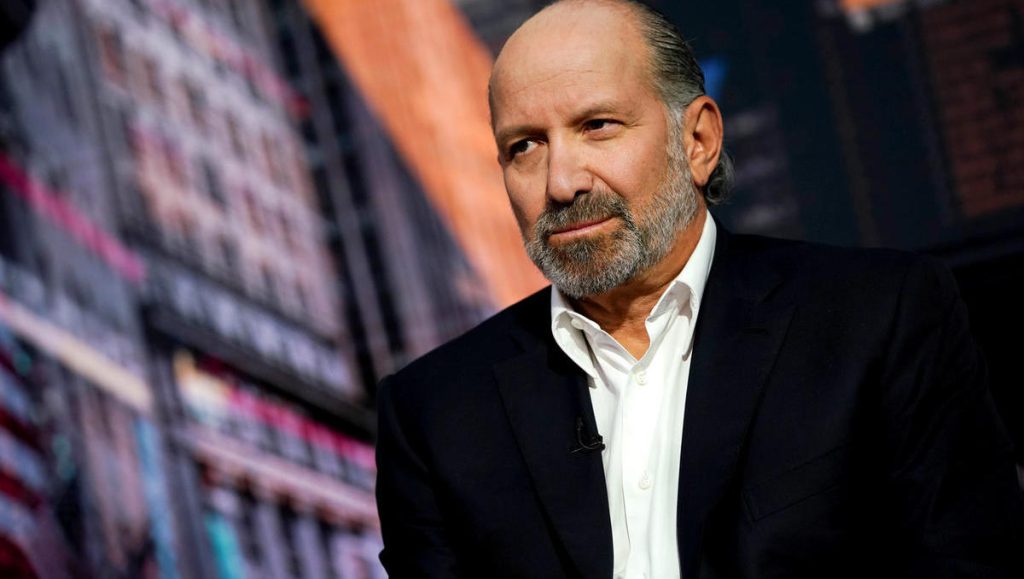
Donald Trump has named Howard Lutnick, CEO of Cantor Fitzgerald, as his pick for Secretary of the Department of Commerce, marking a pivotal decision in his administration’s upcoming focus on trade and tariffs. Lutnick, who has served as a co-chair for Trump’s presidential transition team, will play a key role in the new administration’s trade and tariff agenda, overseeing critical aspects of U.S. trade policy, including the Office of the United States Trade Representative.
In his statement, Trump highlighted Lutnick’s responsibility for leading the U.S. trade and tariff initiatives, a central pillar of his economic plan. Lutnick’s appointment comes as part of a larger shake-up, after a competitive selection process that saw other potential candidates, including former U.S. Trade Representative Robert Lighthizer and Linda McMahon, who led the Small Business Administration under Trump from 2017 to 2019, considered for the position. Lutnick’s selection surprised many, as McMahon had been seen as the frontrunner, with Lighthizer emerging as a close second in recent weeks. However, in a surprise move, Trump settled on Lutnick for the position.
Lutnick, 63, has been an influential figure within Trump’s transition team for months, managing key personnel decisions and offering advice on cabinet nominations. During this time, McMahon had focused on policy issues while Lutnick worked on staffing and vetting. However, when it became clear that McMahon would not be chosen for Commerce, her frustration grew. The news that Lutnick would take on the role was reportedly a surprise to her, signaling the unpredictability of Trump’s cabinet appointments.
The Department of Commerce, as overseen by the Secretary, plays a significant role in advancing U.S. businesses, negotiating trade agreements, and promoting foreign investment. The department is responsible for 13 bureaus, including agencies such as the Census Bureau, the National Oceanic and Atmospheric Administration (NOAA), and the Patent and Trademark Office. Lutnick’s role is expected to have major implications for U.S. trade relations, particularly given Trump’s hardline stance on tariffs during his first term.
The Department of Commerce was pivotal during Trump’s first term under Secretary Wilbur Ross, especially in the midst of the trade war with China. Ross was a staunch advocate for imposing tariffs as a tool for economic diplomacy. Lutnick’s views align with this aggressive approach, and his advocacy for higher tariffs has been a consistent theme. At a recent Trump campaign rally at Madison Square Garden, Lutnick stated that the U.S. economy was most prosperous in the early 1900s when tariffs, rather than income taxes, were a key part of the nation’s economic policy. He also suggested that high tariffs on goods, particularly from China, could generate significant revenue for the U.S.
Lutnick’s appointment, however, has been controversial. He recently faced backlash for defending Robert F. Kennedy Jr.’s unsubstantiated claims that vaccines contribute to higher rates of autism in children. Kennedy, a long-time anti-vaccine advocate, was selected by Trump for a role as Health and Human Services Secretary. This selection, combined with Lutnick’s previous comments on the topic, has drawn criticism from public health advocates.
Lutnick’s history is also marked by his leadership following the September 11, 2001, terrorist attacks. As CEO of Cantor Fitzgerald, Lutnick lost hundreds of employees, including his brother, when the company’s headquarters in the North Tower of the World Trade Center was hit. In response, Lutnick helped establish a relief fund for the families of those lost in the attack. He continues to serve on the board of the National September 11 Memorial and Museum, highlighting his personal connection to the tragedy.
This appointment is part of a broader reshuffling of roles within Trump’s upcoming administration. Lutnick’s selection for Commerce signals the continuation of Trump’s trade policies, including a focus on tariffs and trade deficits, areas that were central to his first term. While some have praised Lutnick’s business acumen and experience in finance, others have raised concerns over his controversial stances and the potential impact of his policies on international relations.
As Lutnick steps into his new role, all eyes will be on how his leadership shapes U.S. trade policy and whether his previous controversial remarks, including his defense of Kennedy’s anti-vaccine stance, will affect his standing within the administration. With trade tensions still high and major international negotiations on the horizon, Lutnick’s role will be key in navigating the economic challenges ahead for the Trump administration.







